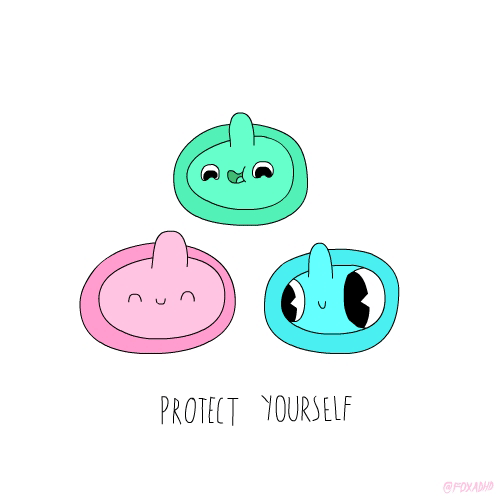ninowwss-blog
11 posts
Latest Posts by ninowwss-blog


get updated, information is safer than fear and prejudice
http://stopthehivstigma.tumblr.com/
Prevention idea






Pre-Exposure Prophylaxis (PrEP)
Daily PrEP to Prevent HIV
PrEP − Pre-Exposure Prophylaxis − is a daily pill that can help you stay HIV-negative. The medicines in PrEP can protect you before you might be exposed to HIV.
The Basics
Consider PrEP. PrEP is for HIV-negative people who are at risk of being exposed to HIV through sex or injecting drugs and who are ready to take a daily pill.
Talk to Your Doctor. You need to speak with a doctor or nurse before you start using PrEP. Your doctor or nurse can help you decide if PrEP is right for you. These clinics can help you get PrEP. Providers at these clinics can help you decide if PrEP is right for you.
Take PrEP Every Day. PrEP is taken daily in pill form. Do not skip a dose. PrEP works much better at stopping HIV if you take it every day.
Know the Common Side Effects. PrEP can have mild side effects, like stomach pain, weight loss and headaches, especially at the beginning of treatment. PrEP may not be right for everyone. Talk to your doctor.
Use Condoms. Even if you take PrEP daily, condoms give you additional protection against HIV, other sexually transmitted infections, and unintended pregnancy.
Know the Common Side Effects. PrEP can have mild side effects, like stomach pain, weight loss and headaches, especially at the beginning of treatment. PrEP may not be right for everyone. Talk to your doctor.
Find Out about Paying for PrEP. Many insurance plans including Medicaid cover PrEP. Assistance may be available if you are uninsured.
Know about PEP. PrEP is not an emergency medication. If you think you were recently exposed to HIV, you may need emergency PEP.
(From New York City Department of Health and Mental Hygiene)
Prevention idea

Today, people across the globe unite in the fight against HIV #WorldAIDSDay






UN AIDS Docs/Site: World AIDS Day 2014 -Close the Gap
World AIDS Day 2014 is an opportunity to harness the power of social change to put people first and close the access gap. Closing the gap means empowering and enabling all people, everywhere, to access the services they need.
Close the HIV prevention gap
Close the HIV testing gap
Close the HIV treatment gap
Close the funding gap
Close the research gap
Close the innovation gap
Close the education gap
Close the knowledge gap
Close the gap—leave no one behind
Close the gap—full respect for human rights
Close the gap—protective laws for all
Close the gap—no more stigma
Close the gap—empower all women everywhere
Close the gap—leave no one behind
Close the gap—zero discrimination
Close the gap—zero new HIV infections
Close the gap—zero AIDS-related deaths
Close the Gap —people are being left behind
people living with HIV need access to HIV services
adolescent girls and young women are being left behind
prisoners are being left behind
migrants are being left behind
people who inject drugs are being left behind
sex workers are being left behind
gay men and other men who have sex with men are being left behind
children and pregnant women living with HIV are being left behind
displaced persons are being left behind
people with disabilities are being left behind
people aged 50 years and older are being left behind
Ending the AIDS epidemic by 2030 is possible, but only by closing the gap between people who have access to HIV prevention, treatment, care and support services and people who are being left behind.
By closing the HIV testing gap, the 19 million people who are unaware of their HIV-positive status can begin to get support.
By closing the treatment gap, all 35 million people living with HIV will have access to life-saving medicine.
By closing the gap in access to medicines for children, all children living with HIV will be able to access treatment, not just the 24% who have access today.
By closing the access gap, all people can be included as part of the solution.
World Aids Day Special “ENDING HIV CAMPAIGN”
Matthew Mitcham is one of Australia’s favourite, openly gay Olympic champions who has been involved with and supported ENDING HIV on several occasions. In this video he talks about the impact HIV has on the gay community, the needless stigma that still surrounds HIV and the benefit of rapid HIV testing.
Source / Credit: ENDING HIV YouTube Channel
BOYSKISSLOVE. Your place to be!

Two hands in a handshake, with a red ribbon wrapped around them. On top, it says “spread the word, not the virus” underneath it says “stop aids, keep the promise”

Today is National Black HIV/AIDS Awareness Day. Spread the word and make an appointment to get tested today: http://p.ppfa.org/1eESEdg
#HIV











